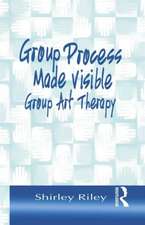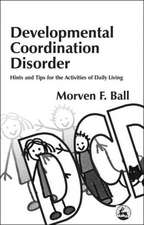Beginnings, Second Edition: The Art and Science of Planning Psychotherapy
Autor Mary Jo Peeblesen Limba Engleză Hardback – 11 apr 2012
| Toate formatele și edițiile | Preț | Express |
|---|---|---|
| Paperback (1) | 421.45 lei 3-5 săpt. | +35.65 lei 4-10 zile |
| Taylor & Francis – 26 apr 2012 | 421.45 lei 3-5 săpt. | +35.65 lei 4-10 zile |
| Hardback (1) | 1065.24 lei 6-8 săpt. | |
| Taylor & Francis – 11 apr 2012 | 1065.24 lei 6-8 săpt. |
Preț: 1065.24 lei
Preț vechi: 1294.31 lei
-18% Nou
203.86€ • 221.36$ • 171.24£
Carte tipărită la comandă
Livrare economică 22 aprilie-06 mai
Specificații
ISBN-10: 0415883083
Pagini: 454
Ilustrații: 8 tables
Dimensiuni: 152 x 229 mm
Greutate: 0.75 kg
Ediția:Revizuită
Editura: Taylor & Francis
Colecția Routledge
Locul publicării:Oxford, United Kingdom
Public țintă
Postgraduate, Professional, and Professional Practice & DevelopmentCuprins
Notă biografică
Recenzii
"The second edition of this wonderful guide for psychotherapists is a gift to all of us who struggle with tailoring the therapeutic approach to the specific, idiosyncratic qualities of each patient. Mary Jo Peebles combines rigorous scholarship and her own subjective observations about how to begin psychotherapy in a way that assures the treatment course will follow the optimal path that both patient and therapist seek. She illuminates many of the dark uncertainties that haunt therapists as they approach their new patients, and she provides invaluable advice for even the most experienced therapists. I heartily recommend this volume to both new students and senior clinicians." - Glen O. Gabbard, M.D., author, Long-Term Psychodynamic Psychotherapy
"Beginnings is an outstanding introduction to the craft and science of psychotherapy for trainees from a broad range of professional backgrounds and theoretical orientations. Peebles seamlessly weaves together theory, research, and clinical wisdom with the unique voice and sensibility of a master clinician and teacher. Replete with vivid clinical examples and hard-earned insights, this book stands in a class of its own. Readers will find themselves carried along on a panoramic tour of the psychotherapy landscape that is both practical and inspiring." - Jeremy D. Safran, Ph.D., Professor of Psychology, New School for Social Research, and Faculty, NYU Postdoctoral Program in Psychotherapy and Psychoanalysis
"This gracefully written book elaborates the well-founded belief that a good beginning holds the key to effective psychotherapy. Peebles marshalls in convincing fashion the ample evidence that good beginnings have two essential components: a positive working alliance characterized by trust, respect, and positive expectations and a clear treatment focus consisting of patient-therapist agreement on the goals of the treatment and the procedures that will be followed in pursuing these goals. In doing so, she combines extensive coverage of relevant theoretical formulations and research findings with detailed guidelines for implementing good beginnings and numerous illustrative case excerpts. This is one of those rare books that will be appreciated by psychotherapy researchers and practitioners alike and valued by psychotherapists at all levels of experience." - Irving B. Weiner, Ph.D., Clinical Professor of Psychiatry and Neurosciences, University of South Florida
"My interest is to train therapists in evidence-based treatments that have the validated treatment methods but typically lack a framework to incorporate the therapist's emotional and personal experiences toward optimizing the therapeutic relationship. The field needs Dr. Peebles' book to help us navigate the ambiguities of psychotherapy, guide us to listen before choosing the evidence-based intervention, and listen more to evaluate our choices. I like best the way she discusses the often abstract concept of boundaries; she gets right to the point of how to set healthy boundaries, be empathic, and stay connected and on course in the midst of often intense emotional struggles." - Edmund C. Neuhaus, Ph.D., ABPP, Assistant Clinical Professor of Psychology, Harvard Medical School
"When I read the first edition of Beginnings, I told my students and colleagues it was the best therapy book I had read in a decade, and it has been required reading for my students ever since. I know of no other book that offers so clear a window into the thought processes of a master clinician. With this new edition, Peebles transcends mere wisdom and achieves poetry." - Jonathan Shedler, Ph.D., Associate Professor of Psychiatry, University of Colorado School of Medicine
"Acquired over decades, Dr. Peebles' mastery of the craft is abundantly evident throughout her book; she offers readers a plethora of plans, guides, and tools, generously illustrated with clinical examples and vignettes...Therapists at all levels of experience have much to learn from the work of this master, but I wish especially that beginning therapists, who are liable to be assaulted with the injunction to practice narrowly focused, evidence-based treatments, would read this book for a glimpse of the broad vista and to appreciate the staggering array of options for interventions open to the therapist at every turn of the journey." - Jon G. Allen, Ph.D., Bulletin of the Menninger Clinic
Descriere
Utilizing a decade's worth of clinical experience gained since its original publication, Mary Jo Peebles builds and expands upon exquisitely demonstrated therapeutic approaches and strategies in this second edition of Beginnings. The essential question remains the same, however: How does a therapist begin psychotherapy? To address this delicate issue, she takes a thoughtful, step-by-step approach to the substance of those crucial first sessions, delineating both processes and potential pitfalls in such topics as establishing a therapeutic alliance, issues of trust, and history taking. Each chapter is revised and expanded to include the latest treatment research and modalities, liberally illustrated with rich case material, and espouse a commitment to the value of multiple theoretical perspectives. Frank and sophisticated, yet eminently accessible, this second edition will be an invaluable resource for educators, students, and seasoned practitioners of any therapeutic persuasion.





![Cross-Cultural Perspectives in Introductory Psychology (with Infotrac) [With Infotrac]](https://i3.books-express.ro/bt/9780534546533/cross-cultural-perspectives-in-introductory-psychology-with-infotrac-with-infotrac.jpg)












